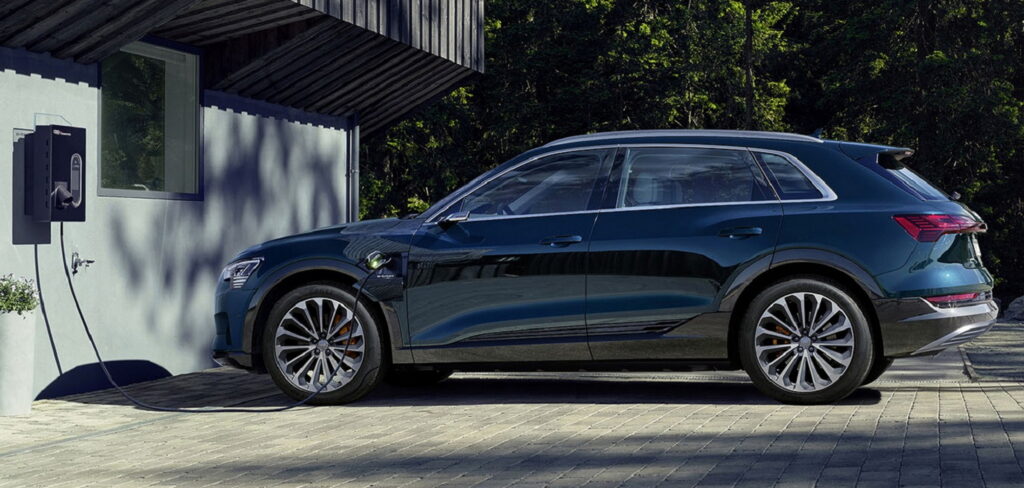Audi will add a temperature sensor to Level 2 charging cables to ensure that the draw doesn't cause your home's sockets to overheat

Audi is recalling 93,196 electrified vehicles in the U.S., but in another sense, it’s recalling your home. That’s because the problem is related to an issue that doesn’t damage the vehicle it produced but could melt your house’s electrical outlets — potentially causing a fire
Fortunately, Audi is not aware of any fires, injuries, or deaths as a result of this issue, which can occur when owners charge at home. However, it has received 615 customer complaints since 2021, which is a cause for concern.
Audi writes that the problem does not affect people who slow-charge using a 110-volt outlet, but can occur when they use the faster 220V/240V charger, otherwise known as a Level 2 unit. In houses with outlets, wiring, and circuit breakers that can’t handle the load, there may be an issue.
advertisement scroll to continue
Models Included In Recall
Read: GM Recalls Over 10,000 Chevy Bolt Charging Cords That Could Shock EV Users
According to documents published by the National Highway Traffic Safety Administration (NTHSA), the cable gets hot enough that you can feel it if you try to grab it. In some cases, the connection can get so hot that the socket melts, becoming permanently damaged, which could lead to a fire.
Audi became aware of this problem in 2021 when reports of melting plugs surfaced. After investigation, it found that its cables and vehicles were not at fault. To address the issue, Audi added warning stickers to vehicles, advising customers not to charge at full power if their homes couldn’t handle it. Additionally, the company invited customers to nearby dealerships for instructions on adjusting the charging setting to 50 percent power.
However, since the cable could still easily be misused, Audi and NHTSA decided that a recall campaign was necessary. Audi will take back the charging cables it originally handed out, and replace them with one that has a heat sensor in it to prevent a home socket from overheating. The new cable will become available in the second quarter of 2024.



